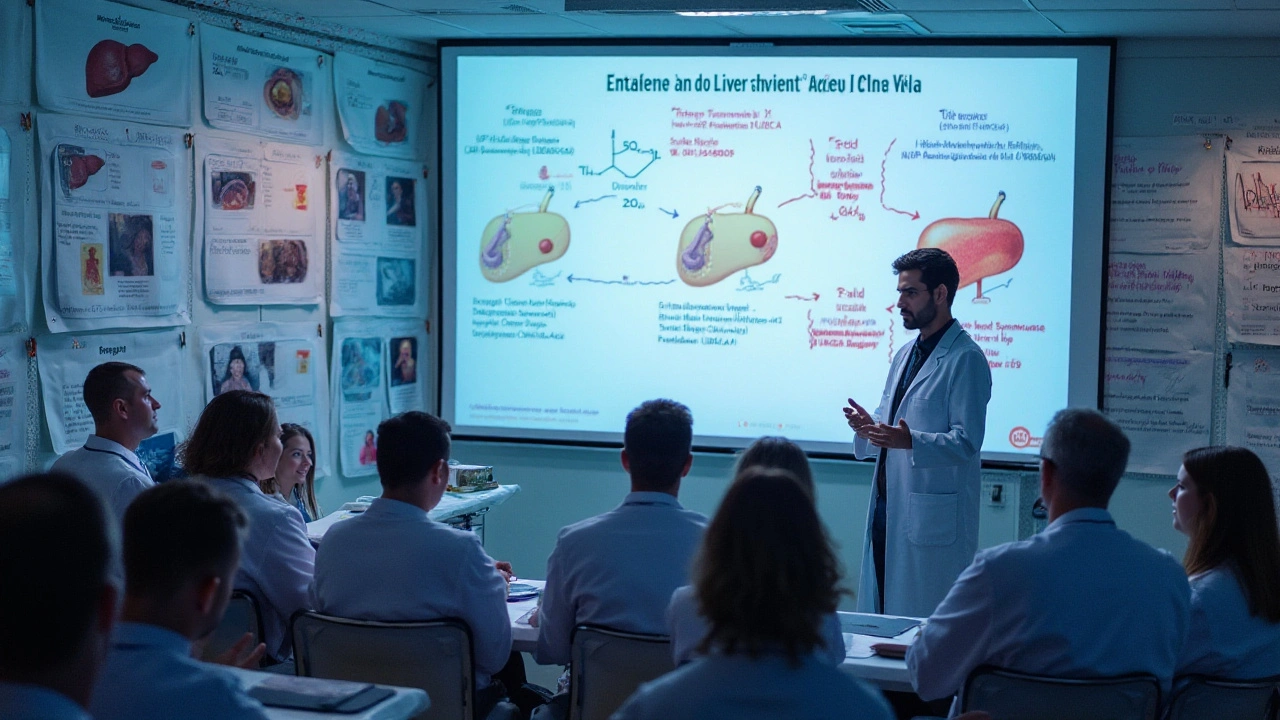Liver Health: Simple Steps You Can Start Today
Your liver works quietly but hard. It filters blood, handles medicines, stores energy, and helps fight infections. Because it does so much, small problems can grow fast if you ignore signs. Here are clear, practical steps to keep your liver working well.
Quick signs your liver needs a check
Watch for a few red flags: yellowing of skin or eyes (jaundice), dark urine, pale stools, persistent stomach pain under the right ribs, unexplained tiredness, and itching. Any of these deserve a call to your doctor. Simple blood tests can spot problems early—ask for ALT, AST, ALP, and bilirubin.
Some medications and supplements stress the liver. For example, fluconazole (Diflucan) can raise liver enzymes in some people. Praziquantel (Biltricide) and certain antidepressants can also affect liver tests. Even over-the-counter acetaminophen in high doses is a common cause of liver injury. If you take medicines regularly, get baseline liver tests and check them after starting a new drug.
Everyday habits that help your liver
Cut back on alcohol. If you drink, stick to the recommended limits or discuss safer options with your clinician. Excess alcohol is a top cause of liver damage.
Lose weight if you’re overweight. Nonalcoholic fatty liver disease (NAFLD) is now very common and links closely to excess weight and insulin resistance. Losing 5–10% of body weight often improves liver tests and fat in the liver. Aim for steady habits: small calorie cuts, more vegetables, lean protein, and regular exercise—30 minutes most days.
Watch your medicine list. Tell every clinician about all prescriptions, over-the-counter drugs, and herbal supplements. Some “natural” products—like kava or high-dose green tea extract—can harm the liver. Your pharmacist can check for interactions and safer choices.
Protect yourself against viral hepatitis. Vaccines exist for hepatitis A and B. Practice safe sex, avoid sharing needles or personal grooming items that could draw blood, and ask about testing if you have risks.
Simple diet tips: reduce added sugar and refined carbs, limit fried and processed foods, and eat more fiber and whole foods. Coffee (without too much sugar or cream) has been linked to lower risk of liver disease in multiple studies—one more reason to enjoy that cup.
When to act fast: if you have sudden jaundice, severe abdominal pain, confusion, or heavy bleeding, get urgent medical help. For ongoing concerns, schedule a visit to review meds, order liver blood tests, and consider imaging (ultrasound or FibroScan) if needed.
If you buy meds online, choose reputable sources and check with your doctor before starting them. Our site covers medication guides and safety notes on many drugs that affect the liver—read those before you decide. Small steps now can prevent big problems later. Start with a liver panel and one habit change this week.
Comparing Ursodeoxycholic Acid to Alternative Liver Treatments
When it comes to addressing liver diseases, Ursodeoxycholic Acid (UDCA) remains a widely discussed option in the medical community. This article dives deep into how UDCA works compared to other common liver treatments, exploring its benefits and limitations. With liver health being a crucial aspect of overall wellness, understanding these treatment options can help guide informed decisions. We will also uncover lesser-known facts and provide practical tips on liver care. Join us in this exploration of liver treatments and find out which might be best suited for your needs.

